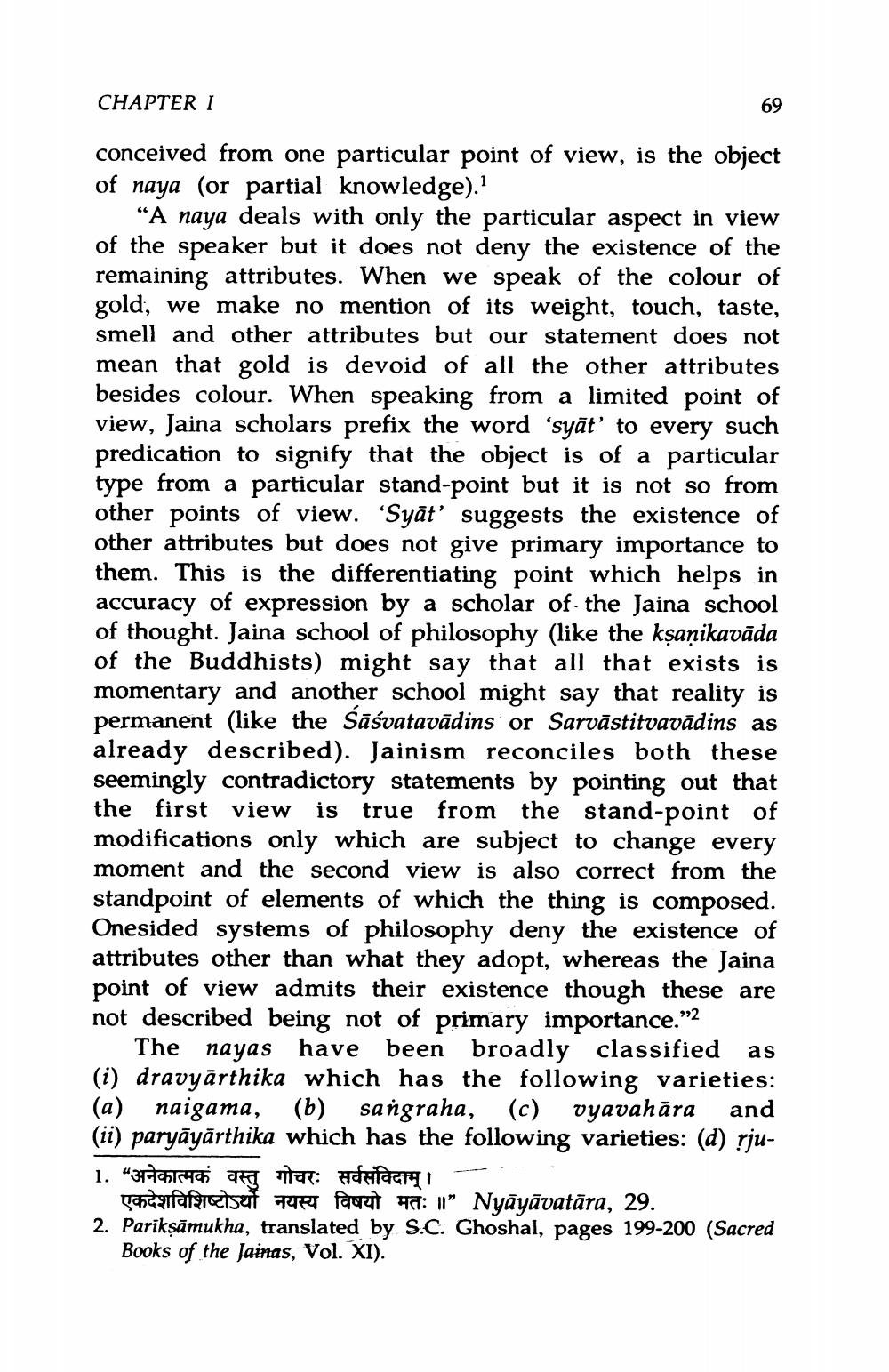________________
CHAPTER I
69
conceived from one particular point of view, is the object of naya (or partial knowledge).1
"A naya deals with only the particular aspect in view of the speaker but it does not deny the existence of the remaining attributes. When we speak of the colour of gold, we make no mention of its weight, touch, taste, smell and other attributes but our statement does not mean that gold is devoid of all the other attributes besides colour. When speaking from a limited point of view, Jaina scholars prefix the word 'syat' to every such predication to signify that the object is of a particular type from a particular stand-point but it is not so from other points of view. 'Syat' suggests the existence of other attributes but does not give primary importance to them. This is the differentiating point which helps in accuracy of expression by a scholar of the Jaina school of thought. Jaina school of philosophy (like the kṣaṇikavāda of the Buddhists) might say that all that exists is momentary and another school might say that reality is permanent (like the Śāśvatavādins or Sarvāstitvavādins as already described). Jainism reconciles both these seemingly contradictory statements by pointing out that the first view is true from the stand-point of modifications only which are subject to change every moment and the second view is also correct from the standpoint of elements of which the thing is composed. Onesided systems of philosophy deny the existence of attributes other than what they adopt, whereas the Jaina point of view admits their existence though these are not described being not of primary importance."2
The nayas have been broadly classified (i) dravyarthika which has the following varieties: (a) naigama, (b) sangraha, (c) vyavahāra and (ii) paryāyārthika which has the following varieties: (d) rju1. “ अनेकात्मकं वस्तु गोचरः सर्वसंविदाम् ।
एकदेशविशिष्टोऽर्थो नयस्य विषयो मतः ॥” Nyāyāvatāra, 29.
as
2. Parikṣāmukha, translated by S.C. Ghoshal, pages 199-200 (Sacred Books of the Jainas, Vol. XI).




